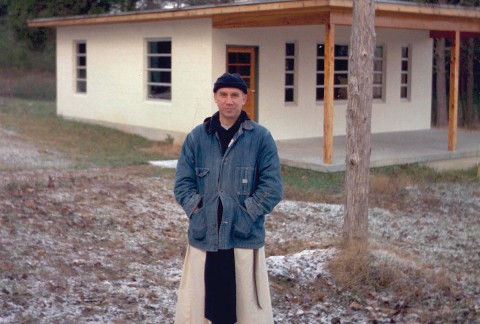I want to talk to Thomas Merton about race
Merton has been my spiritual companion, but as a Black woman, I have questions for him.

I want to talk to Thomas Merton about race. One might doubt whether a cloistered White man who lived in Kentucky in the middle part of the last century would have anything useful to offer, but this particular monk knew that such a conversation is never about race alone. Talking about race means, among many things, sharing our fears and frustrations about our place in the world, about how people are treated, about a hope for better opportunities that never seem to materialize. In other words, it’s about dignity, respect, a shared humanity, and ultimately our hearts and souls. Racism is not just about White people treating people of color badly; it is about how the repercussions of that treatment reverberate for everyone, to the detriment of us all.
There is something so intuitive about Merton’s views that I think talking to him about race would be helpful. I have a hunch that he, unlike many White people, would be willing to go to the heart of the matter in a way that doesn’t focus on him.
Merton moved to the United States in the late 1930s, when African Americans were referred to as “Negroes” and segregation was a fact of life. His own position—that of a young White man and a Columbia University student—was a privileged one that would have allowed him, if he chose, to ignore the injustice and inequality imposed on people of color. But somehow he was able to look at race and say, quite coherently, that something was very wrong.




